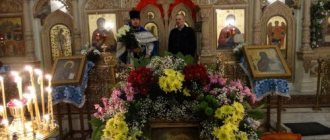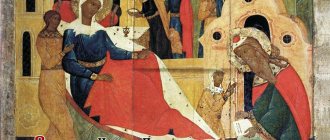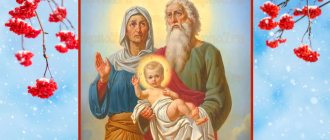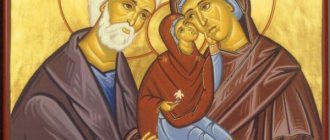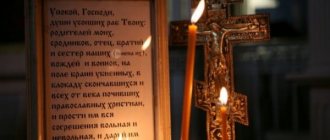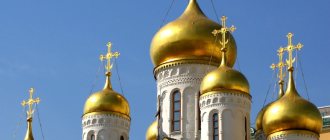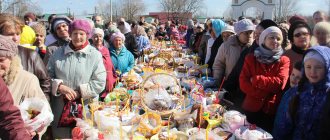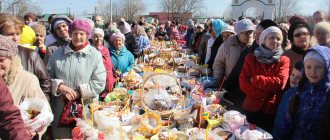Hardly anyone does not know what Easter is and how and when it is celebrated. Without exaggeration, almost half of the planet’s inhabitants take part in the celebrations of Bright Resurrection.
According to various sources, 2.2 billion people on Earth are Christians of different denominations. Let's add here another 14 million Jews who celebrate Passover - and we get a very decent figure.
But on the other hand, is there something that we still don't know about? For example, why is Easter called this way? What is the significance and deep meaning of the Great Day? What holidays will be before and after Easter?
You can get interesting answers about this and much more right now.
Why is Easter called that?
If 10 out of 10 people say that they know about the meaning of Easter, and another 7-8 even name the next date of the celebration, then hardly half know about the origin of the word itself. And there’s nothing wrong with that, because the history of the main holiday of Christians is as old as life. It dates back at least... 3400 years.
Yes, exactly 3400, and not 2000, as one might think at first glance. Why is that? To answer this question, we must come to the correct name of the Easter holiday and what it means. And for this we should delve briefly into history.
What does the word "Passover" mean?
In general, this day initially began to be celebrated not by Christians at all, but by Jews, who are mostly represented by the Jewish people. This story began about 3,400 years ago, when almost the entire nation was enslaved by the Egyptians.
Initially, the Jewish tribes settled in Egypt, following their leader Joseph, who was also a slave, but thanks to his talent later became the ruler of that country. 3-4 centuries have passed, and times have changed dramatically.
The Jews increased significantly in number, and Pharaoh began to seriously fear that they would destroy his country. Therefore, it was decided to convert the people into slavery, as was done with almost all strangers in the dark times.
In their enslaved state, people, as they say, suffered through everything. But one day a leader named Moses emerged from among them, who united the entire people and led them out of Egyptian slavery. This happened on the 14th of Nisan - the spring month according to the Jewish calendar, which corresponds to March and April.
Jews began to celebrate the anniversary of this event from the very first day, and the tradition is still alive. Moreover, this particular holiday is the main one in modern Israel, and in connection with this, almost a whole week of weekend is allocated. And it is called Passover, which translated from Hebrew means “passed by.”
The fact is that, according to legend, on the last night before the flight from Egypt, the Lord commanded all Jews to smear the doorposts of the front door of each house with the blood of a lamb. As a result, when God went across the earth to punish the Egyptians, he bypassed all the houses with this sign. So it turns out that Passover is a word that literally means “bypassed,” and in literary translation it means “deliverance,” “salvation.”
And this completely intersects with the Christian idea of the holiday. After all, Christ also delivered all people from sin and the power of death. He took upon himself all the lawlessness and accepted the death penalty, although in fact he was not guilty of anything. Therefore, today sin seems to “pass by” all believers, who at any moment can repent of their mistakes and ask for forgiveness from God.
Easter or Easter - how to say it correctly?
In rural areas, and sometimes in large cities, Easter is also called Passover . This word often means a holiday cake (somewhere Easter baked goods are also called “pasochki”), and less often – the name of the celebration itself.
Such a pronunciation has the right to life, but still it is not the most correct option. It is no coincidence that in many online dictionaries it is defined as colloquial. Most likely, the word “Paska” came about according to the “deaf telephone” principle: to some, the sound of the word seemed correct in this particular version.
Therefore, it is most correct to say as most people are used to: “ Easter ”.
Numbers and calendars
By the 4th century. the entire Roman Empire, therefore also the Church, used the calendar introduced by Emperor Julius Caesar on January 1, 45 BC. (therefore it is called Julian), and the day of the vernal equinox was determined by it.
However, the length of the year did not exactly correspond to the so-called “solar year,” that is, the time of the Earth’s complete revolution around the Sun. luminaries The calendar year was longer than the actual year by about 11 minutes.
It would seem that an insignificant difference after one and a half millennia resulted in a shift in the vernal equinox from March 21 to March 11. If the Orthodox did not see anything critical here, then Catholics, prone to rationalism and accuracy, on October 4, 1582 switched to the calendar called “Gregorian”, named after Pope Gregory XIII. Due to the one-time transition, 10 days fell out of the church year: after October 4, 15 came.
Such, from the point of view of Eastern Christians, “disorder” led to the fact that the days of remembrance of some saints fell out of 1582, and some countries that switched to the “new style” later were unable to celebrate Christmas. Therefore, the East did not recognize the Gregorian calendar.
Easter and Passover: what they mean and how they differ
On the other hand, how did it happen that Easter is celebrated on approximately the same days as Passover? The answer to this question is even simpler. If we turn to the Bible or simply to the history of this holiday, we can easily learn not only what Easter is called, but also why it is celebrated precisely on the spring days of March or April (less often, May).
The fact is that Christ was resurrected exactly on the anniversary of Passover. All Jews traditionally, according to the centuries-old tradition, were preparing to celebrate the next memorable date. But quite unexpectedly, an event occurred that largely changed the course of subsequent history. The Savior rose from the dead and appeared to his disciples (and Mary Magdalene was the first to see him).
It turns out that the two holidays seemed to overlap one another. Is this a coincidence or not? One thing is certain: the meaning of Easter and Passover coincide in many ways.
God once delivered the Jewish people from the sin of slavery, and through Jesus Christ he forgave the sins of all humanity. We can say that this Great Holiday is a symbol of deliverance from everything that weighs on us, that spiritual burden that does not necessarily need to be carried with us.
However, the majority of the Jewish people still continue to celebrate the holiday of Passover, and not Easter as such. And there is nothing strange in this: after all, at the time of the resurrection of Christ, the tradition had already existed for about 1400 years. Folk memory has an unusually great power - for example, how many centuries have we been celebrating the same Maslenitsa?
Traditions, symbols and festive table
Of course, there are many differences in traditions. For example, Jewish Passover is celebrated for 8 days - in 2022 from April 15 to 23 . The Orthodox holiday of Easter is celebrated mainly on Sunday, although this is followed by Bright Week and another 40 days of after-feast - exactly until the moment when the Ascension of Christ is celebrated.
Everyone knows that among Christians the symbol of Easter is a painted egg. It unites Orthodox and Catholics, as well as other representatives of the Christian religion.
But Jews, by the way, also put eggs on the table, and they only paint them red or burgundy. Several other dishes are also served at the Passover Seder, each of which has its own symbolic meaning.
Easter greeting
Christians greet each other with the exclamation: “Christ is risen!”, to which they answer: “Truly he is risen.” And the Jews say “Chag Pesach Sameach!”, which means: “Happy Passover.” You can find out more about this here.
Celebration dates
And now something about the dates of celebration. Back in 325 AD, the Church Council of Nicea decided to celebrate Easter on the first Sunday after the first spring full moon. The believers of those times wanted, as they would say today, to distance themselves from the Jews, because it was their ancestors who once betrayed Christ by calling on the Roman governor Pilate to crucify him.
That is why the dates of the celebration of Christian Easter and Jewish Passover never coincide - such a visible manifestation of human disagreements. Moreover, from a religious point of view, the celebration is celebrated at the same time of the year - for Jews it is the 14th of Nisan, and for Christians on the first Sunday after the first full moon.
Are Easter and Passover related words?
Is there anything in common between Orthodox and Jewish Passover? Oddly enough, there is. First of all, the name catches your eye: Easter and Passover – aren’t these related words? Of course, this is so: the word “Easter” actually comes from the word “Passover”.
It is a variant spelling of a Hebrew word in the Latin alphabet from which many modern European languages are derived. True, it is also interesting that as such the word “Easter” is used mainly in Slavic languages - for example, in Russian.
But in a number of other languages the word is written and read completely differently:
- Easter (“iste”) in English.
- Ostern (“stop”) in German.
- Velikonoční (“Velikonoční”) in Czech.
- Húsvét (“hushveet”) in Hungarian, etc.
Traditions of celebrating Catholic Easter
The Descent of the Holy Fire in Jerusalem
The main attribute of the holiday for Catholics is fire, which personifies victory over darkness, rebirth and purification.
Catholics light large bonfires in front of the gates of churches, from which first the clergy and then the parishioners light the Paschal (a large thick candle). After this, Catholics begin an Easter crusade around the temple with the singing of the sacred hymn.
Holy Easter - what does it mean?
However, the verbal similarity is only a superficial coincidence, and, of course, it is not decisive. As always, to truly understand something, we should focus on the main thing and forget about the unimportant. Any holiday has its own spiritual basis - this is the content, meaning, i.e. its very essence.
What is the meaning of Easter ? The Lord sent his only son Jesus Christ to earth, who, at the cost of his own life, took upon himself the sins of all mankind and thus freed them from the slavery of sin. Yes, people today are sinners - after all, life on earth is far from ideal.
However, every person can count on God's mercy and forgiveness of his sins. This is called judging by mercy, i.e. not by merit, but by love.
What is the meaning of Passover ? The Lord chooses Moses, who rescues the Jewish people from slavery, i.e. brings him out of Egyptian captivity. Moses, thus, appears as a savior, a national hero of the Israelis. In that story, God's mercy and omnipotence were revealed to the people - after all, on the way to their promised land, people faced a lot of trials. But still they passed them and achieved the main goal - liberation.
It turns out that the very essence, the core of these two big events is, in general, one. One more similarity can be found - the dates fall in the spring time between March and April. Perhaps this is the best time on earth, when winter finally gives way to spring, and farmers are preparing for a new sowing season. And this coincidence is by no means formal.
Many historians believe that, generally speaking, welcoming spring is a very ancient tradition, which, undoubtedly, was reflected in the celebration of Easter. This is easy to believe if we think about the significance of spring for our distant ancestors.
Today food is available all year round, including fruits, mushrooms and other summer products. But for many millennia all this was achieved with great difficulty. And it is no secret that man was extremely dependent on nature, including his life.
There will be a bad harvest year - and everyone can only think about spring coming. After all, this is the time of life when the sun heats up more and more, and the grass grows faster and faster. The first fruits, berries, vegetables and fruits appear. This is the triumph of life over death, liberation from former fears.
That is why, despite the huge number of differences between Easter and Passover, there is also a lot of commonality between them. And this commonality lies at the very basis of the holidays. The main characters change, traditions change. But the essence still remains the same.
Easter is the day when we celebrate the rebirth of nature, liberation from the power of sin and death. And everyone can continue this line on their own: Jews will write the name of Moses, Christians will write the name of Jesus. But the initial phrases will remain unchanged.
Easter according to the New Testament
On Israeli soil, Jesus Christ was born to the Virgin Mary, who was destined to save human souls from the slavery of hell. At the age of thirty, Jesus began preaching, telling people about the laws of God. But three years later he was crucified along with others disliked by the authorities on a cross that was installed on Mount Golgotha. This happened after the Jewish Passover, on Friday, which was later dubbed Passion. This event adds new meaning, traditions and attributes to the meaning of the Easter holiday.
Christ, like a lamb, was slain, but his bones remained intact, and this became His sacrifice for the sins of all mankind.
"Christ is Risen!" and other Easter greetings in different languages
We all know that Orthodox Christians congratulate each other like this: “Christ is Risen!”, to which the answer certainly follows: “Truly He is Risen!” After this, you are supposed to kiss your interlocutor three times on each cheek in turn. This greeting is called Christening.
Another similar version of congratulations is also allowed, according to the norms of the modern Russian language: “Christ is risen!” - “Truly risen!” It’s just that the first version is much closer to the original church language. Moreover, we still largely live by his canons, although we ourselves may not pay attention.
For example, the prayer “Our Father”, where the word “Father” is used, not “Father”. Let’s remember Pushkin’s famous fairy tale about the goldfish, where she turned to her grandfather: “Well, what do you need, Starche?”
The thing is that for a long time in the Russian language there were not 6, but 7 cases. And the seventh case was called vocative. This case included special forms of nouns like those we discussed above.
And again, it is very difficult to change the popular habit, because we still say: “Lord,” “son,” “daughter,” etc. In most cases these are already colloquial expressions, but it seems they will exist for a very long time.
Now let’s look at how our near and distant neighbors greet each other when they congratulate each other on the great holiday of Easter:
| language | greetings | answer |
| Belorussian | Hrystos uvaskros / uvaskres! | Sapraўdy ўwaskros/ўwaskres! |
| Ukrainian | Christ is risen! | He is truly risen! |
| Czech | Kristus je vzkříšen! Kristus vstal z mrtvých / zmrtvýchvstal! | Vskutku je vzкříšen! Vpravdě vstal z mrtvých! Skutečně vstal! Opravdu zmrtvýchvstal! |
| German | Christus (Der Herr) ist auferstanden! | Er ist wahrhaftig auferstanden! |
| English | Christ is risen! | He is risen indeed! Indeed, He is risen! Truly, He is risen! |
| French | Christ est resuscité! | En vérité/ Vraiment, Il est ressuscité! |
| Italian | Cristo and risorto! | È veramente risorto! |
In each case, the words of greeting and response are translated exactly as in our language. It’s just that in some places the answers are longer, in others they are shorter. And this is no coincidence, because what does Easter mean for Christians? This is the day when the Savior was resurrected.
Therefore, the Easter greeting reflects the whole essence and sacred meaning of this celebration. In a way, this is similar to how we say: “Happy New Year!” With new happiness!" That is, the New Year is a time of good renewal, and Easter is the holiday when Christ rose from the dead and saved all believers from their sins.
What date will Easter fall on in 2022?
Catholics and Orthodox Christians use different calendars when counting: in the first case, the Gregorian, and in the second, the Julian. Therefore, it turns out that Catholics start from the vernal equinox on March 21 according to the new style, and Orthodox Christians start from the date according to the old style (i.e. the real date is April 3).
Thus, in 2022 Easter will be:
- for the Orthodox - April 24;
- for Catholics - April 17.
What holidays come before and after Easter?
The church calendar has its own characteristics, memorable dates, which, by the way, often overlap with official holidays. For example, January 7 - Christmas - is a day off. And May 9 is not only Victory Day, but also a day of remembrance, when memorial services are held in all Orthodox churches in Russia for fallen soldiers in all battles for their homeland.
And Easter occupies a special place in the calendar, since it is preceded by other holidays, and even after it the celebrations continue for 40 days, until the Ascension of the Lord.
Holidays until Easter
Firstly, it must be said that the holiday date is preceded by the strictest and longest fast of the year - it is called accordingly: Great Lent. This difficult period lasts 48 days, i.e. almost 7 weeks, until the last night from Saturday to Sunday. Afterwards, you are allowed to eat any food and even drink church wine or another recreational drink (of course, within reasonable limits).
But the most interesting thing is that even during Lent we can distinguish 3 special days on which small indulgences are allowed - believers can use vegetable oil in cooking, eat baked fish, drink tea with honey. These are the dates:
- Saturday in the last week before Easter, which is also called Lazarev (in 2022 it is April 16). According to legend, on this day Christ went to visit his old friends - Mary and Martha. However, the joyful meeting did not work out: instead of warm communication, Jesus witnessed the funeral of his friend Lazarus, who was the brother of these girls. Taking pity on him, the Lord resurrected Lazarus. And with this event he seemed to anticipate his own salvation.
- The next day comes Palm Sunday - a holiday that is celebrated exactly a week before the main date (in 2022 it is April 17). On this day, Christ rode into Jerusalem on a donkey, and an enthusiastic crowd laid palm leaves right on the road along which the Savior walked.
- And another holiday, which is sometimes celebrated before Easter, and sometimes after it, is the Annunciation. Its date never changes: the celebration is celebrated on April 7. This is exactly 9 months before the birth of Christ, since Orthodox Christians celebrate Christmas on January 7th. Many readers probably understood the subtext of this date: 9 months is not a random number. According to legend, it was on April 7 that an angel appeared to the Virgin Mary and told her that she would be the mother of Jesus, who would become the Messiah for all humanity.
Holidays after Easter
And the main holiday of Christians itself is not limited to one day. Of course, the main celebrations occur on Bright Resurrection, but throughout the week after that, believers continue to greet each other with the words: “Christ is Risen!” - “Truly He is Risen!” According to church tradition, this week is called Bright Week - a phrase that speaks for itself.
And even with the end of this holiday week, the celebrations do not end. It is customary to celebrate Easter dates until the 40th day, when all believers celebrate the day of the Ascension of the Lord. This is also an important holiday, the date of which changes annually. For example, in 2022, the Ascension is celebrated on June 2 (since the Easter celebration itself will take place on April 24).
This holiday always falls on Thursday 6 weeks after Easter Sunday. It is believed that it was on this day that the Lord ascended to heaven. That bright day, Christ was talking with his disciples, and suddenly they saw how he began to come off to the ground. The Savior disappeared overnight, leaving the apostles in complete amazement.
At that same moment, an angel descended from heaven and said that God had taken his son to heaven, for he had already completed his mission. However, the story does not end there - one day the Lord will come to earth in the same way as he left it.
How many days is the Christian Easter celebrated?
Orthodox Easter is celebrated for 40 days.
Orthodox Easter is celebrated for 40 days - 38 days of Easter plus Bright Resurrection and the Day of the Ascension of the Lord.
During these 40 days, Orthodox Christians are ordered to greet each other with a joyful cry of “Christ is Risen!” and answer: “Truly he is risen!”, connected with a threefold kiss.
Lent
Easter in Russia is one of the main holidays, even for those people who very rarely go to church. Today, in the era of high technology and urbanization, among generations who prefer the computer to face-to-face communication, the church is slowly losing its power over the hearts and souls of people. But almost everyone, regardless of age and strength of faith, knows what Lent is.
Older generations in families pass on traditions. Rarely does anyone decide to adhere to the entire fast; more often than not, only in the last week do people somehow follow the rules.
For 40 days, believers must eat without eating animal products (and on some days fasting is stricter), not drink alcohol, pray, confess, take communion, do good, and not slander.
Lent ends with Holy Week. The Easter service has a special meaning and scope. In modern Russia, services are broadcast live on central channels. In every church, even the smallest village, candles are lit all night and chants are sung. Millions of parishioners all over the country stay up all night, pray, attend services, light candles, and bless food and water. And fasting ends on Sunday, after all church rituals have been completed. Those who fast sit down at the table and celebrate Easter.
Easter greeting
From childhood, we teach children that when greeting a person on this holiday, you need to say: “Christ is Risen!” And answer these words: “Truly He is Risen!” To find out more about what this is connected with, you need to turn to the Bible.
The essence of Easter is the passage of Jesus to his Father. The story goes that Jesus was crucified on Friday (Passion). The body was taken down from the cross and buried. The coffin is a cave carved out of the rock, closed with a huge stone. The bodies of the dead (there were also victims) were wrapped in fabrics and rubbed with incense. But they did not have time to perform the ritual with the body of Jesus, since according to Jewish laws, working on the Sabbath is strictly prohibited.
Women - followers of Christ - on Sunday morning went to his tomb to perform the ritual themselves. An angel came down to them and told them that Christ had risen. Easter from now on will be the third day - the day of the resurrection of Christ.
Entering the tomb, the women were convinced of the words of the angel and conveyed this message to the apostles. And they told this good news to everyone. All believers and non-believers had to know that the impossible had happened, what Jesus said had happened - Christ had risen.

